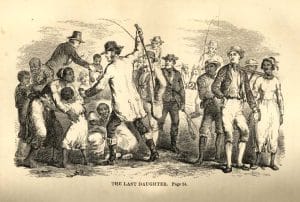Previously undisclosed emails reveal the reach and influence a right-wing lobbyist group had in pushing a major private school voucher program during this year’s PA state budget negotiations.
According to emails obtained by The Keystone, conservative lobbyists from the Commonwealth Foundation were working with the Pennsylvania Treasurer’s office to push the Pennsylvania Award For Student Success scholarship program (PASS), or lifeline scholarships program, through the state legislature.
Nathan Benefield, the senior vice president of the Commonwealth Foundation, wrote emails in June to Charles Zogby, a senior staffer from Treasurer Stacy Garrity’s office, about the anticipated passage of the PASS scholarship program, which Gov. Josh Shapiro had initially signaled his support for. Both Zogby and the Commonwealth Foundation have a lengthy history of advocating for private school voucher programs, claiming that they offer more choices and educational options to parents and students.
As state Education Secretary and later state Budget Secretary, Zogby spent much of his career championing a vision of public education that included reducing funding and resources for public schools and weakening protections for teacher’s unions, supporting charter schools and school vouchers instead. His recent cooperation with the Commonwealth Foundation is just the latest in a long line of attempts to defund public education.
The Commonwealth Foundation, in particular, has put immense pressure on lawmakers to support the PASS scholarship program. During budget negotiations in late June, the lobbyist group even launched an ad campaign attacking Democratic state Rep. Matt Bradford, claiming that he wants “thousands of low-income, minority students” to suffer in “failing schools.”
While Shapiro ultimately vetoed the school voucher program when he signed the state budget in August, the foundation is still trying to get the governor “to honor the deal he made with Senate Republicans by including Lifeline/PASS Scholarships in the pending fiscal code bills required to finalize the state budget.”
The $100 million program would have purportedly funded scholarships to send students from public schools with the lowest standardized test scores to private or parochial schools, but education experts say this is “false advertising.” Whether they’re funded directly by the state or through the Educational Improvement Tax Credit Program (EITC), private school voucher programs divert money away from already underfunded public schools, worsening educational disparities.
READ: Pennsylvania Is the Cyber Charter Capital of the Country. It’s Not Something to Celebrate
Arthur Steinberg, the president of AFT Pennsylvania, told the Bucks County Beacon that school voucher programs are “harmful” and “anti-public education.” According to Steinberg, a Bucks County resident, Pennsylvania does not currently have an adequate or equitable school funding system, and so reallocating money to private schools further deprives public schools of the resources they need to thrive.
“We should be fully funding traditional public schools so that every kid has access to a world class education,” he said.
In addition to taking money away from public schools in need, Steinberg says school vouchers “leave kids behind.” Not only are they not available to every student, but research has shown that they don’t improve student achievement. “Educational outcomes are significantly worse,” he said. Studies in multiple states have found that students who use school vouchers tend to perform worse in private schools, with one study finding that test scores actually increased after students transferred back to schools in the public sector.
According to the Center on Budget and Policy Priorities, voucher programs tend to benefit students who are already enrolled in private schools, and target students from wealthy families instead of low-income families. Despite this, Steinberg notes that local public schools will still lose funding for these students, causing public school students to suffer.
“When you take resources and dollars away from the schools, they can’t provide the extra help that English language learners need, special needs youngsters need. They’re not able to properly fund libraries, so they can’t offer a full spectrum of educational services,” he said. “If people want to send their kids to private schools, that is their right. However, our first obligation is to make sure that every kid has an opportunity to get a thorough and efficient public education, and these voucher schemes rob everybody of that opportunity.”
READ: Pennsylvania Cyber Charter Owners and Operators Get Rich While Students Receive Poor Education
Another major problem with school voucher programs is that private schools are not required to serve all students. In fact, private schools are allowed to discriminate against students on the basis of race, gender, sexual orientation, disability, etc. so long as they don’t receive federal funding.
“Many schools don’t serve kids with disabilities,” Sharon Ward, the senior policy director for the Education Law Center, told the Bucks County Beacon. “They are not subject to federal discrimination laws, so they can choose to either not accept or disenroll LGBTQ students.”
In the end, it’s the Commonwealth Foundation and Jeffrey Yass who benefit from these programs the most, having amassed millions of dollars through the EITC and other tax credit programs over the years. Ward says the foundation and other similar groups are only interested in “eliminating public institutions” and “undermining support for public schools,” not improving education for disadvantaged students.
Funding these inadequate and discriminatory voucher programs using taxpayer dollars would only further damage already struggling public schools in dire need of proper funding.
READ: School Vouchers Have Been a Disaster—Now Advocates Are Trying to Rename Them
“It’s absolutely true that our schools don’t have the resources that they need and that can be very frustrating to parents, but we are on the cusp of really changing that completely,” Ward said, citing a recent court ruling instructing lawmakers to fix Pennsylvania’s unconstitutional school funding system. “The things that are concerning to parents are things that are related to the state’s unwillingness to invest in the public school system, and we are really at a crossroads now where we will expect to see a large investment that is actually going to make sure that schools are able to meet all students’ needs.”







